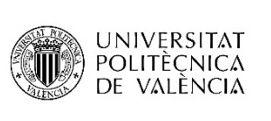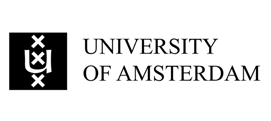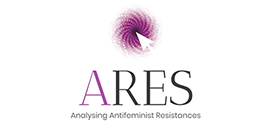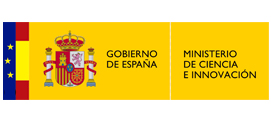
Congress & committees: Who we are
The University of Deusto and the COST Action Platform Work Inclusion Living Lab, in collaboration with the Polytechnic University of Valencia and the University of Amsterdam, invite you to the I International Congress «Women, technology and power.”
In this congress, we explore the following questions: What power asymmetries are hidden in digital technology? What can be learned from women’s stories in technology? What hinders or enables empowering women through technology? What is the relationship between datafication and gender? What new critical interpretations of the datafication process are emerging? How do platforms shape discourses or determine decisions that affect women? What new narratives can inspire the rise of fairer technological systems and algorithms? What possibilities can digital technology offer for equality? What digital practices challenge gender discrimination and antifeminist narratives? This congress is the culmination of a four-year project designed to detect discursive antifeminism, envision fairer futures in digital media content and behavior, and ultimately imagine a better world.
Technology is a form of power. Corporations and institutions with the tools, knowledge, and opportunity to exploit big data have a great capacity to influence and reign. The data infrastructure has been used to monitor individuals, rig elections, discriminate against communities, and support ethnic cleansing. As essential parts of the data infrastructure, the platforms and their algorithms are crucial elements. Due to the digitalization, datafication, and platformization of content, processes, and communication, the platform has become a dominant economic and infrastructure model. Platform-biased algorithmic decision-making can have serious consequences. For example, women are often offered worse jobs, their images are relentlessly sexualized, and they are less eligible for loans, which can exacerbate inequality. In addition, platforms play a key role in spreading misogyny, gender misinformation, and, in some cases, promoting and organizing gender-based violence. Since datafication turns most social aspects into data, it seems imperative to take a feminist look at the dominant data narratives.
On the other hand, intersectional feminist studies are exploring new ways of thinking about digital technology and datafication. For example, feminism in data science – a growing space for exploration – focuses on the fact that data infrastructures are neither neutral nor objective, as they are products of unequal social relationships. Emerging initially from cypherpunk and technopositivist approaches, data activism is increasingly creating space for feminist and postcolonial inquiry into the consequences of datafication and a ground for action on behalf of equality. Feminist data studies consider women as users and designers of algorithmic systems, explore how data affects women’s lives and how equality can be fostered through regulation, and practice data activism to promote fairness. Data feminism also requires critical and transversal readings from race, law, engineering, economy, and labor studies. We aim to summon specialists from these fields to explore the intersections between women, power, and technology.
DIRECTION
- Miren Gutiérrez, University of Deusto, m.gutierrez@deusto.es
- Antonia Moreno Cano, University of Deusto, antonia.moreno@deusto.es
ORGANIZING COMMITTEE
- Mayo Fuster Morell, Berkman Klein Center for Internet and Society, Harvard University mfuster@cyber.harvard.edu
- Maria Luz Guenaga, University of Deusto, mlguenaga@deusto.es
- Diego Casado, Assistant Professor, University of Deusto, dcasado@deusto.es
SCIENTIFIC COMMITTEE
- Diego Álvarez, Associate Professor, Polytechnic University of Valencia, ARES Researcher, dalvarez@upv.es
- Stefania Milan, Associate Professor, University of Amsterdam, ARES Advisory Committee member, s.milan@uva.nl
- Annabel Martín, Professor, Dartmouth University, ARES Advisory Committee member, annabel.martin@dartmouth.edu
- Cristina Ortiz, Associate Professor, University of Wisconsin-Green Bay, ARES Advisory Committee member, ortizc@uwgb.edu
- Mayo Fuster Morell, Berkman Klein Center for Internet and Society, Harvard University mfuster@cyber.harvard.edu
- Pilar Rodriguez, Associate Professor, PI Communication Research Group, University of Deusto, ARES Researcher, maria.pilar@deusto.es
- Fernando Bayón, Associate Professor, Vice dean of research, University of Deusto, fernandobayon@deusto.es
- María Jesús Pando, Associate Professor, University of Deusto, ARES Researcher, mpando@deusto.es
- Miren Gutiérrez, Assistant Professor, Universidad de Deusto, IP ARES, m.gutierrez@deusto.es
- Antonia Moreno Cano, Researcher, Universidad de Deusto, antonia.moreno@deusto.es
COMMITTEES
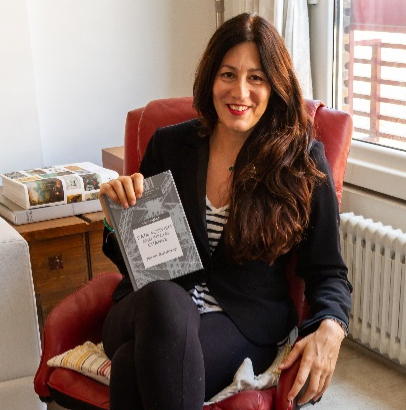
Miren Gutiérrez
Assistant Prof. UD,
IP ARES
More info
Miren Gutiérrez holds a Ph.D. in Communication and is a researcher at the University of Deusto. She has published over 60 articles, chapters, monographs, and scientific-technical reports. She is also the Principal Investigator of the ARES research program (analysis of antifeminist resistance), financed by the State Research Agency (AEI). She is also a Research Associate at ODI in London (UK), generating scientific reports based on big data. The central theme of her research is data and algorithms as tools for data activism and as a space for political and social debate. Gutiérrez is the author of the book Data Activism and Social Change, London: Palgrave-Macmillan. She has been certified as a full professor by Ikerbasque. She is on the editorial board of Frontiers in Communication (ESCI) and an AEI evaluator. She is a professor in the degree programs in Communication, International Relations, and Law, and in the postgraduate programs of the Erasmus Mundus master’s in international Humanitarian Action and the Doctorate in Communication for Human Development at Deusto. She is also a visiting professor at the University of Navarra (Spain) and the University of Tartu (Estonia).

Antonia Moreno Cano
Postdoctoral researcher in the Communication Research team, University of Deusto
More info
Antonia Moreno holds a PhD in Journalism specializing in Science, Technology, and Health from the University of the Basque Country (UPV/EHU). She has two degrees, one in Optics and Optometry (University of Murcia, 2000) and another in Journalism (UPV/EHU, 2004). She developed her Postdoctorate at the Ikerbasque Foundation (2015), and since 2010, she has worked in different universities in Colombia and Spain as a professor of the Bachelor’s Degree in Communication. She is currently linked to the Communication Research Group of the University of Deusto as a postdoctoral researcher.

Mayo Fuster Morell
IP Dimmons,
Harvard University
More info
Mayo Fuster Morell is faculty associate at the Berkman Klein Center for Internet and Society, Harvard University. She is the lead researcher of Dimmons Research Group (2021 SGR 01383). She is the Chair of the COST ACTION P-WILL on intersectional feminist applied to platform economy (2022-2026), a pan-European network of more than 50 countries and 150 members hosted by Public Policy Research Center, Belgrade. She was the lead researcher of the European project PLUS on platform work and welfare state, and DECODE Citizens Owned Data Ecosystem and at the IGOP’s European Project: P2Pvalue: Techno-social platform for sustainable models and value generation in commons-based peer production in the Future Internet. In 2010, she concluded her Ph.D. thesis on the governance of common-based peer production at the European University Institute in Florence, and she has numerous publications in the field.

Diego Casado
Associate Researcher, University of Deusto
More info
Diego Casado Mansilla is an Associate Researcher in the MORElab/DEUSTEK research group and professor at the Faculty of Engineering at the University of Deusto. He received his doctorate from that same university in 2016. The research topic of his thesis was the use of persuasive technologies to generate pro-environmental behavioral changes. His research interests focus on interaction technologies between everyday objects augmented with technology and people, persuasion and motivation strategies for change through technology, behavioral change, citizen science, and how to generate hybrid intelligence spaces between machines and people with social purposes. Casado-Mansilla has more than 50 scientific publications on interaction topics in the field of sustainability and the Internet of Things (IoT), of which 19 are JCR and three book chapters (WoS h-index: 6, Scopus h-index: 10, Google h-index: 13). He has worked on 7 H2020 projects of which he is the principal investigator (PI) in two of them, he has been PI in two projects of the national research plan RETOS I D i and he has participated in more than ten national and regional projects in collaboration with companies. Finally, Casado-Mansilla is a member of several scientific committees at IEEE and ACM.

Diego Álvarez
Associate Professor, Polytechnic University of Valencia
More info
Diego ALVAREZ holds a Ph.D. in Computer science and a master’s in development policies and Processes from the Polytechnic University of Valencia, where he is a tenured Professor in the Department of Audiovisual Communication, Documentation, and Art History. He has made communication his scientific study object, particularly interested in Media pluralism and diversity and the relationship between media and democracy. Álvarez has participated in several multidisciplinary research projects focused on the role of media in empowerment processes to facilitate the participation of citizens in processes of social change that pursue the creation of a more just society. He has worked on developing an open standard for electoral programs (Open Manifesto Project). Among the works in the field of political activism, he has participated in the development of the Collaborative Representation proposal, a prospective study on political participation and collaboration from the perspective of Big Data within the framework of Open Government, an analysis of the contribution to empowerment processes of the electoral programs of the political parties. He has collaborated with the Open Government team of the Provincial Council of Valencia and has provided collaborative input to its Open Government Strategy. As a civic hacker, he has set up several initiatives to drive the development and use of civic technologies to hold public representatives accountable. In collaboration with Prof. David Pardo, run analizo.info, a social entrepreneurship initiative created to facilitate citizen participation in information analysis, seeking to improve society in the political, social, economic, and environmental areas.

Estefania Milan
Professor of Critical Data Studies at the University of Amsterdam’s Department of Media Studies
More info
Stefania Milan. Professor of Critical Data Studies at the University of Amsterdam’s Department of Media Studies. Faculty Associate at the Berkman Klein Center for Internet & Society, Harvard University, and Research Associate, Chair “Artificial Intelligence & Democracy” at the School of Transnational Governance, European University Institute. Investigates the interplay between technology and society, and the possibilities of self-organization, emancipation, and autonomy that digital infrastructure opens. A social scientist by formation, she values interdisciplinary research, including critical data studies, political sociology, and science and technology studies.
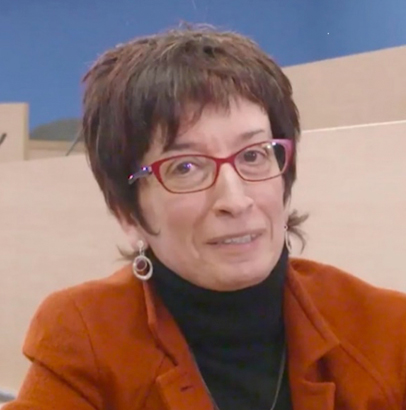
Annabel Martín
Professor at Dartmouth University, USA.
More info
Annabel Martín carries out her teaching career and her research on contemporary Spanish culture from Dartmouth College in the US as a full professor in the Department of Spanish and Portuguese and in the Comparative Literature and Women’s, Gender, and Sexuality Studies Programs. She was also the creator and first director of the Gender Research Institute at Dartmouth College. Her research work is part of the field of feminist cultural studies dedicated to the analysis of nationalism, historical memory, and terrorist violence and reconciliation in the Basque context from a gender perspective. He has published extensively in these areas as well as on gender and tourism in developing Spain, on the role of the humanities in the neoliberal world or on issues of gender and educational models. She is the author of the book La gramática de la felicidad: Relecturas franquistas y posmodernas del melodrama (2005), coeditor of Tras las huellas del terrorismo en Euskadi: Justicia Restaurativa, Convivencia, Reconciliación (2019) and prepares a manuscript, Rest in Peace: The Basque Political contours of the arts, on the role that the arts play in the processes of reconciliation and democratic deepening in collaboration with various Basque artists, mediators, and victims. She is also part of several international research groups, including CITUR on film and tourism at the Universitat de València and CinemAGEnder (film and age studies). She is part of the advisory board of the SERENE NETWORK group (EU Horizon 2020) on gender and equality, is a member of the advisory board of Feminism (s), and in 2019 held the Bernardo Atxaga Chair of the CUNY Graduate Center of the Instituto Etxepare (Basque Government).
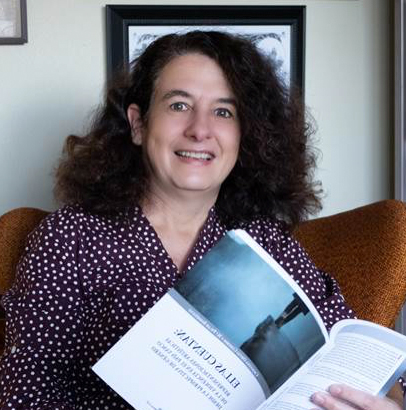
Cristina Ortíz
Professor and head of the Department of Humanities at the University of Wisconsin-Green Bay
More info
Cristina Ortíz Ceberio has a degree in Philosophy and Letters from the University of the Basque Country (San Sebastián) and a doctorate in Romance Language and Literature from the University of Cincinnati (Ohio, United States). She is currently a professor and head of the Department of Humanities at the University of Wisconsin-Green Bay, where she teaches interdisciplinary courses on contemporary culture and courses on Spanish language and literature written in Spanish. Her most recent publications include the monographic volume Ellas Cuentan: Artistic representations of violence in the Basque Country from a gender perspective (Madrid: Dykinson, 2020) co-authored with Dr. María Pilar Rodríguez from the University of Deusto, which has been translated into English as Affective Landscapes: Representation of Terrorism and Violence by Basque Female Authors (New York, Berlin: Peter Lang, 2021). She is the author of numerous articles on Spanish and Latin American literature and cinema and studies on nation and nationalism from the perspective of gender studies. 2015 her professional work was awarded the Patricia W. Baer Honorary Professorship.
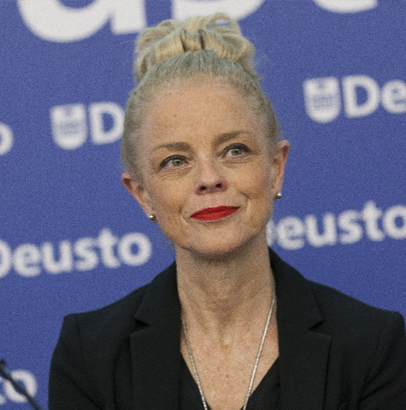
María Pilar Rodríguez
Professor in the Department of Communication at the University of Deusto and Principal Investigator of the research team in Communication
More info
María Pilar Rodríguez is a tenured professor in the Department of Communication at the University of Deusto and has been the Director of the Doctorate Programme in Leisure, Culture, and Communication for Human Development from 2014 until 2023. She holds a Ph.D. from Harvard University (Cambridge, USA). Until 2002 she was a professor at Columbia University (New York, USA). She is the Principal Investigator of the research team in Communication, recognized by the Basque Government with the maximum category A. She has around one hundred publications on literature, cinema, culture, and gender studies. His latest books include those entitled Cine vasco: Una historia política y cultural (IB Tauris, 2015, co-written with Rob Stone; Basque Cinema: A political and cultural history (Social Communication, 2015) and Ellas cuentan: Representaciones artísticas de la violencia en el País Vasco desde la perspectiva de género (Dykinson, 2020, co-written with Cristina Ortiz); Affective Landscapes: Representations of Terrorism and Violence by Basque Female Authors (Peter Lang, 2021).
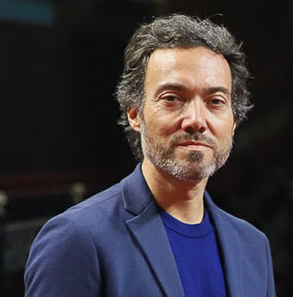
Fernando Bayón
Vice Dean of Research and Doctoral Studies, University of Deusto
More info
Fernando Bayón has a Ph.D. in Philosophy from the University of Deusto. Vice Dean of Research, Postgraduate Studies and Institutes of the Faculty of CCHHSS of UD. Director of the Institute of Leisure Studies of the Faculty of CCHHSS of UD. He is a Researcher of the “Leisure and Human Development” team, officially recognized by the Basque Government with category A. In addition to his teaching commitments in the Doctoral Program ¿Leisure, Culture and Communication for Human Development¿ and in the Official Master’s in Management of Leisure Projects, he is a professor of History of Philosophy in Modernity in the degree of Philosophy, Politics, and Economics at the Faculty of Social and Human Sciences. In his professional career, he has been a Researcher at the Institute of Philosophy of the Scientific Research Council-CSIC (Madrid) and has been a guest professor at the Universities of Cambridge (UK), Yale (USA), Princeton (USA), Tübingen (Germany), ETH-Zurich (Switzerland), Iberoamericana of Mexico and TEC of Monterrey, among others. He has continuously participated in Research Projects within the R&D Plan of the Spanish Ministry of Science and Competitiveness and in European and transatlantic projects, in this last case with the Department of Urban Studies at Fordham University (New York, USA). His areas of specialization are the theory of culture in modernity and the narrative construction of European political memory through literature and the performing and audiovisual arts. He has published almost a hundred articles in impact journals.
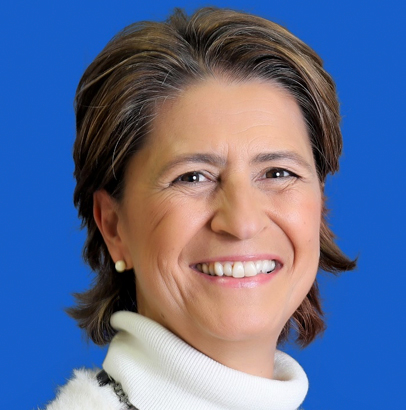
María Jesús Pando
Professor at the University of Deusto
More info
María Jesús Pando Canteli has a doctorate in Language and Literature and is a tenured professor at the University of Deusto, where she has taught classes on analysis and evaluation of media messages and currently on comparative literature and gender studies in undergraduate and doctorate and cultural studies in the Erasmus master’s degree. Mundus Euroculture. Fulbright postdoctoral fellow in 2008-2009, she has actively participated in various international (Aristos Campus Mundus on gender, discourse, and communication) and national (MINECO 2016-2019) projects. She is currently participating in the European project H-2020 Gearing Roles on the implementation of equality plans. She has published articles in indexed journals and book chapters on gender and media and discourse analysis from a gender perspective and on female agency in the literary and cultural scene of 17th-century Europe. She is a regular evaluator of scientific journals on gender, discourse, and society and has a valid six-year term recognized by the CNAI. She has been vice dean of postgraduate studies and attached to the Vice Chancellor for International Relations at the University of Deusto. She currently coordinates the Modern Languages degree at said university.
KEYNOTE SPEAKERS
Stefania Milan
Stefania Milan. Professor of Critical Data Studies at the University of Amsterdam’s Department of Media Studies. Faculty Associate at the Berkman Klein Center for Internet & Society, Harvard University, and Research Associate, Chair “Artificial Intelligence & Democracy” at the School of Transnational Governance, European University Institute. Investigates the interplay between technology and society, and the possibilities of self-organization, emancipation, and autonomy that digital infrastructure opens. A social scientist by formation, she values interdisciplinary research, including critical data studies, political sociology, and science and technology studies.


Catherine D’Ignazio
Catherine D’Ignazio is an Associate Professor of Urban Science and Planning in the Department of Urban Studies and Planning at MIT. She is also Director of the Data + Feminism Lab which uses data and computational methods to work towards gender and racial justice, particularly as they relate to space and place. D’Ignazio is a scholar, artist/designer and hacker mama who focuses on feminist technology, data literacy and civic engagement. She has run reproductive justice hackathons (like the Make the Breast Pump Not Suck Hackathon), designed global news recommendation systems, created talking and tweeting water quality sculptures, and led walking data visualizations to envision the future of sea level rise. With Rahul Bhargava, she built the platform Databasic.io, a suite of tools and activities to introduce newcomers to data science. Her 2020 book from MIT Press, Data Feminism, co-authored with Lauren Klein, charts a course for more ethical and empowering data science practices. D’Ignazio’s second book, Counting Feminicide: Data Feminism in Action (MIT Press 2024), highlights how mainstream data science can learn a lot from the care and memory work of grassroots feminist activists across the Americas. Her research at the intersection of technology, design & social justice has been published in FAccT, the ACM Conference on Fairness, Accountability, and Transparency, the Journal of Community Informatics, and the proceedings of Human Factors in Computing Systems (ACM SIGCHI). Her art and design projects have won awards from the Tanne Foundation, Turbulence.org and the Knight Foundation and exhibited at the Venice Biennial and the ICA Boston.
Mayo Fuster Morell
Mayo Fuster Morell is faculty associate at the Berkman Klein Center for Internet and Society, Harvard University. She is the lead researcher of Dimmons Research Group (2021 SGR 01383). She is the Chair of the COST ACTION P-WILL on intersectional feminist applied to platform economy (2022-2026), a pan-European network of more than 50 countries and 150 members hosted by Public Policy Research Center, Belgrade. She was the lead researcher of the European project PLUS on platform work and welfare state, and DECODE Citizens Owned Data Ecosystem and at the IGOP’s European Project: P2Pvalue: Techno-social platform for sustainable models and value generation in commons-based peer production in the Future Internet. In 2010, she concluded her Ph.D. thesis on the governance of common-based peer production at the European University Institute in Florence, and she has numerous publications in the field.

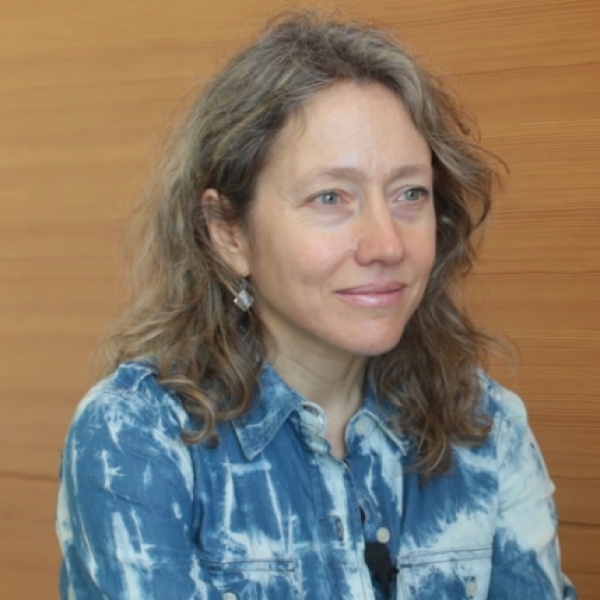
Guiomar Rovira Sancho
Doctor in Social Sciences, area of Communication and politics from the Metropolitan Autonomous University, Mexico. Since January 1, 2023, professor in the Political Science Area of the University of Girona. Researcher Marie Skłodowska-Curie, European Commission H2020 No. 893348. Project: “Online feminist global actions. Potentials and pitfalls of the #MeToo campaign” FEMONMETOO. From 2008 to 2021, professor at the Universidad Autónoma Metropolitana-Xochimilco, Mexico City.
María Lozano Alia
María Lozano has a Master’s Degree in International Law. She is an expert in preventing and combating extremism and violent radicalization and leader of the Victim Remembrance working group for the Radicalization Awareness Network (RAN) of the European Commission. Expert advisor to the United Nations on Crime and Drugs. Founder and director of the European Network of Associations of Victims of Terrorism.

Special guestSpecial guestSpecial guest
SPECIAL GUEST
Sasha Costanza-Chock
Sasha Costanza-Chock (she/they/ella/elle) is a researcher and designer who works to support community-led processes that build shared power, dismantle the matrix of domination, and advance ecological survival. They are a nonbinary trans* femme. Sasha is known for their work on networked social movements, transformative media organizing, and design justice. Sasha is presently the Head of Research & Sensemaking at OneProject.org and Associate Professor at Northeastern University’s College of Arts, Media, & Design. Sasha is also a Faculty Associate with the Berkman-Klein Center for Internet & Society at Harvard University and a member of the Steering Committee of the Design Justice Network. They are the author of two books and numerous journal articles, book chapters, and other research publications. Sasha’s latest book, was published by the MIT Press in 2020.
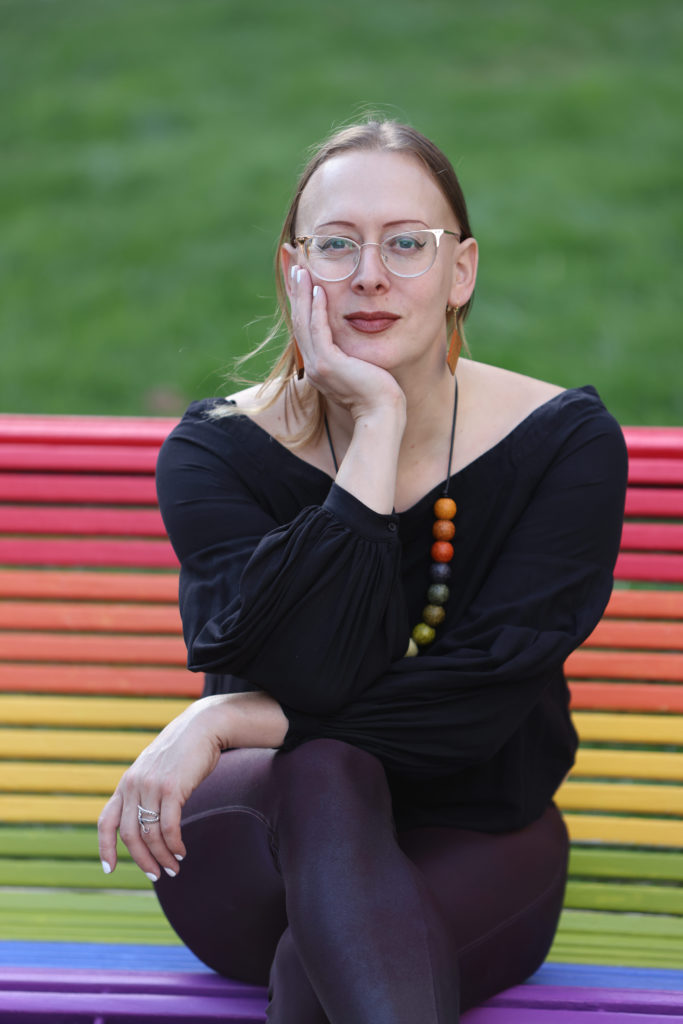
KEYNOTE SPEAKERS

